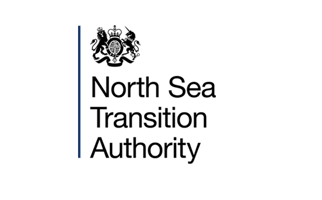
-
New sites could store 10% of total annual UK emissions
-
Successful applications from 12 different companies
-
First CO2 injection into subsurface stores could come within a decade
The drive to net zero emissions has taken a significant step forward today (18 May) with the offer of awards for 20 carbon storage licences at offshore sites, including some near Aberdeen, Teesside, Liverpool and Lincolnshire.
The North Sea Transition Authority (NSTA) launched the UK’s first-ever carbon storage licensing round in June 2022, with applications closing in September. The 20 licences in total are around 12,000 square kilometres in size, a little bigger than Yorkshire, the UK’s largest county.
Once the new storage sites are in operation – and in some cases first injection could come in as little as six years – they could make a significant contribution to the aim of storing up to 30 million tonnes of carbon dioxide (CO2) per year by 2030, approximately 10% of total UK annual emissions, which were 341.5 million tonnes in 2021.
The offers come in the wake of the Chancellor’s Budget announcement that the Government is allocating up to £20 billion in support of developing carbon capture, usage and storage, starting with projects in the East Coast, Merseyside and North Wales.
He added that this would pave the way for CCS as the UK approaches 2050. This first carbon storage licensing round is likely to be the first of many as up to 100 CO2 stores could be needed for the UK to meet the net zero by 2050 target.
The Intergovernmental Panel on Climate Change report in April 2022 emphasised that carbon capture and storage (CCS) technologies are necessary for power and industry sectors to reach net zero emissions. It is also supported by the Climate Change Committee’s Sixth Carbon Budget which emphasises the vital role that carbon storage must play in the UK’s path to net zero.
The licences include a range of geological store types and were selected following a process which considered attributes such as the geology, proximity to existing infrastructure – as is found at Bacton off the coast of Norfolk – and links to industrial clusters which are expecting carbon storage to help meet decarbonisation goals.
The need to share offshore space with other users of the seabed such as wind developers and petroleum operations was also considered as part of the NSTA’s licensing process, recognising the need for both early engagement and continued collaboration between existing licence and leaseholders where an area of the seabed is a key resource area for different sectors.
The future success of the CCS industry requires close co-operation between a number of organisations, and once a licence has been awarded by the NSTA, the licensee also needs to obtain a seabed lease from The Crown Estate or Crown Estate Scotland before a project can progress. Further consents and approvals will be required ahead of any appraisal activity taking place on carbon storage licences.
Stuart Payne, NSTA Chief Executive, said:
“This is an exciting and important day. As a nation, we cannot meet our decarbonisation targets without carbon storage. This is net zero delivery in action.
“The awards we offer today could store around 10% of the UK’s emissions, and through our engagement with applicants, we will have committed work plans in place such as seismic surveys and drilling of wells – we are working with industry to move at real pace.
“The UK’s offshore waters remain the crown jewel of our energy mix, providing energy security, emissions reduction and carbon storage. This will require more and more integration and collaboration in a crowded space, and we are working closely with governments and agencies such as The Crown Estate and Crown Estate Scotland to ensure we maximise this amazing potential.
“We look forward to working with these licensees to make these projects a reality as soon as possible and to opening more carbon storage rounds in the near future – my thanks to our teams and industry for their great work, but this is just the beginning.”
Lord Callanan, Minister for Energy Efficiency and Green Finance, said:
“Thanks to the government’s unprecedented £20 billion investment in early-stage carbon capture and storage development, we are in prime position to take advantage of the geological goldmine beneath our shores to store CO2, and grow our economy by becoming world-leaders in this developing industry.
“These new licences, together with fresh powers granted to NSTA within the landmark Energy Bill, will develop our most comprehensive picture yet of UK’s carbon capture and storage potential, strengthening our energy security and cutting emissions while creating thousands of skilled British jobs.”
Gus Jaspert, Managing Director of Marine at The Crown Estate, said:
“Today’s announcement is a welcome step forward in bringing the UK closer to offshore carbon injection, crucial to meeting the UK’s net zero targets. As managers of the seabed around England, Wales and Northern Ireland, The Crown Estate is committed to designing and delivering the required leasing process for CCUS developers, ensuring this works for all marine users and respects our vital coastal environments and habitats.
“We look forward to continuing to work with NSTA and other partners in this sector on developing this important market.”
Colin Palmer, Director of Marine at Crown Estate Scotland, said:
“The development of the vast carbon dioxide storage available to the UK will be vital to achieving the nation’s net zero targets and today’s announcement is a welcome step towards the greater use of this technology.
“Crown Estate Scotland is working closely with the NSTA, along with colleagues in The Crown Estate, Scottish & UK Governments, and interested project developers to develop appropriate access to seabed and enable greater deployment of CCS in Scottish waters, where it will complement the ambitious programme of offshore wind projects that could help transform the UK energy market.”
Ruth Herbert, Carbon Capture and Storage Association Chief Executive, said:
“Availability of permanent CO2 storage is a key requirement for achieving the UK’s net zero strategy. The CCSA’s Delivery Plan recommended that the government and industry rapidly bring additional storage capacity to a commercial stage of readiness.
“This first carbon storage licensing round from the NSTA is a vital step towards unlocking the UK’s full CO2 storage potential. Given the climate emergency, we hope this will be the first of many such rounds and that further sites around the UK will have opportunity to apply in the near future.”
Notes to editors:
- A Carbon Storage Licence allows developers to appraise sites for storage, with an NSTA permit and a lease from The Crown Estate/Crown Estate Scotland subsequently required before storage activity can properly begin. The award of a Carbon Storage licence does not affect the existing rights of other seabed users such as wind farm developers.
- Bids invited in UK’s first ever carbon storage licensing round
- Carbon storage round attracts 26 bids
- BEIS 2021 UK greenhouse gas emissions, provisional figures
- Carbon capture and storage (CCS) refers to a number of techniques and processes which capture carbon dioxide emissions, generally from industrial processes. The carbon dioxide (CO2) can then be transported, including via repurposed gas pipelines, and stored, for example in underground locations CO2 will typically be stored at depths greater than 800 metres, where it no longer behaves as a gas, but instead as a supercritical fluid. The same geological formations that are well understood in the UK from many decades of oil and gas production, such as the Triassic Bunter Formation and Tertiary Forties Sandstones, are also likely to be ideal for the storage of carbon dioxide.
- CCS involves the capture of CO2emissions from industrial processes, such as steel and cement production, the generation of hydrogen through steam reforming, or from the burning of biomass or fossil fuels in power generation. It may also be used in combination with emerging direct air capture technologies. This carbon dioxide is then transported from where it was produced, via ship or in a pipeline, and stored deep underground in geological formations.
- The NSTA is the licensing authority for offshore CO2 storage in the UK, approving and issuing carbon dioxide storage and appraisal licences, storage permits, and maintaining the carbon storage public register.
- Certain activities proposed under CS licences may also be subject to specific environmental assessment by the Department for Energy Security and Net Zero (DESNZ) (Offshore Petroleum Regulator for Environment and Decommissioning (OPRED)).
- A licensee also requires a lease from the Crown Estate/Crown Estate Scotland (as applicable) before undertaking storage activities.
- NSTA/TCE/CES joint statement
- NSTA/OFGEM Memorandum of Understanding
- The list of carbon dioxide appraisal and storage projects licensed by the NSTA can be seen here
- Spring Budget 2023
- The Ten Point Plan for a Green Industrial Revolution
- Climate Change Committee – Sixth Carbon Budget
- The Crown Estate - Spatial Characterisation Workstream Summary & Analysis
- DESNZ leads government policy on CCS
- NSTA Open Data page
For further information please contact:
Tel: 07785 655620


